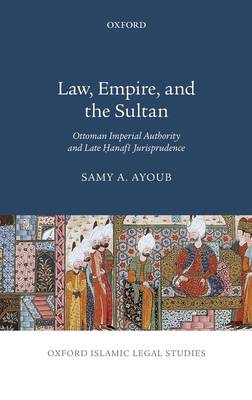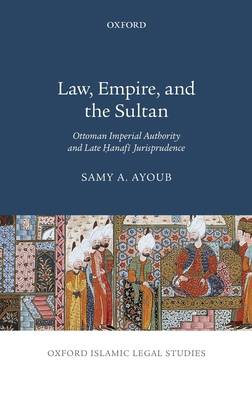
Je cadeautjes zeker op tijd in huis hebben voor de feestdagen? Kom langs in onze winkels en vind het perfecte geschenk!
- Afhalen na 1 uur in een winkel met voorraad
- Gratis thuislevering in België vanaf € 30
- Ruim aanbod met 7 miljoen producten
Je cadeautjes zeker op tijd in huis hebben voor de feestdagen? Kom langs in onze winkels en vind het perfecte geschenk!
- Afhalen na 1 uur in een winkel met voorraad
- Gratis thuislevering in België vanaf € 30
- Ruim aanbod met 7 miljoen producten
Zoeken
€ 241,95
+ 483 punten
Omschrijving
This book is the first study of late Hanafism in the early modern Ottoman Empire. It examines Ottoman imperial authority in authoritative Hanafi legal works from the Ottoman world of the sixteenth to nineteenth centuries CE, casting new light on the understudied late Hanafi jurists (al-muta'akhkhirun). By taking the madhhab and its juristic discourse as the central focus and introducing "late Hanafism" as a framework of analysis, this study demonstrates that late Hanafi jurists assigned probative value and authority to the orders and edicts of the Ottoman sultan. This authority is reflected in the sultan's ability to settle juristic disputes, to order specific opinions to be adopted in legal opinions (fatawa), and to establish his orders as authoritative and final reference points. The incorporation of sultanic orders into authoritative Hanafi legal commentaries, treatises, and fatwa collections was made possible by a shift in Hanafi legal commitments that embraced sultanic authority as an indispensable element of the lawmaking process.
Specificaties
Betrokkenen
- Auteur(s):
- Uitgeverij:
Inhoud
- Aantal bladzijden:
- 216
- Taal:
- Engels
- Reeks:
Eigenschappen
- Productcode (EAN):
- 9780190092924
- Verschijningsdatum:
- 2/01/2020
- Uitvoering:
- Hardcover
- Formaat:
- Genaaid
- Afmetingen:
- 157 mm x 236 mm
- Gewicht:
- 498 g

Alleen bij Standaard Boekhandel
+ 483 punten op je klantenkaart van Standaard Boekhandel
Beoordelingen
We publiceren alleen reviews die voldoen aan de voorwaarden voor reviews. Bekijk onze voorwaarden voor reviews.









